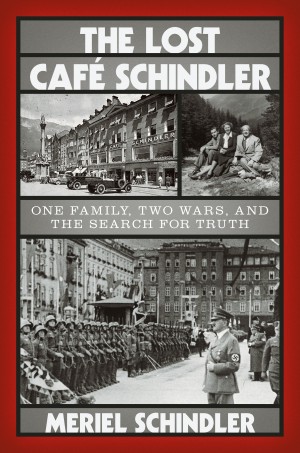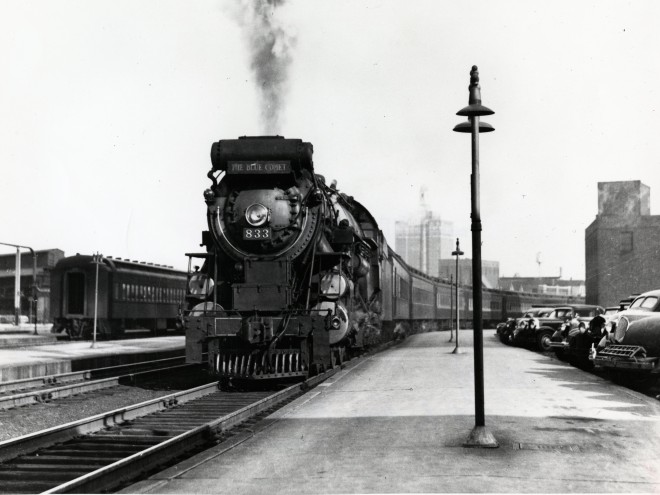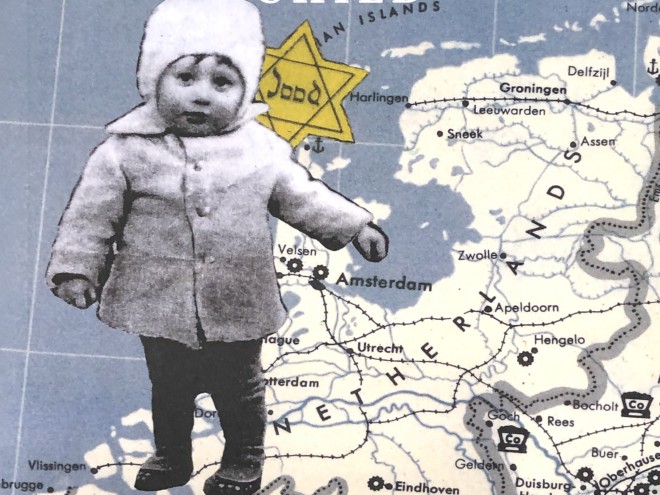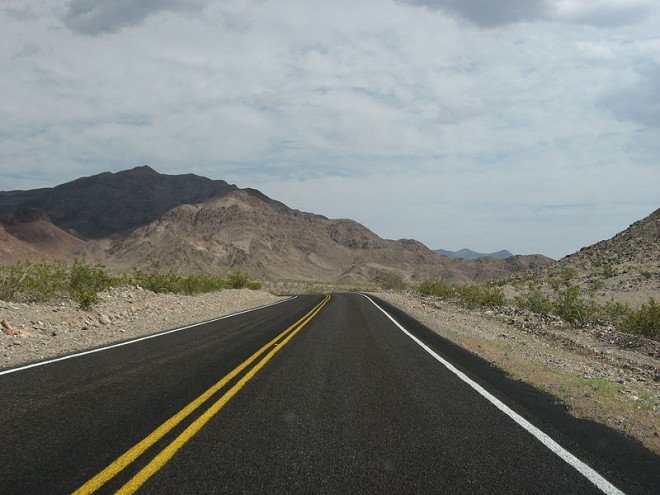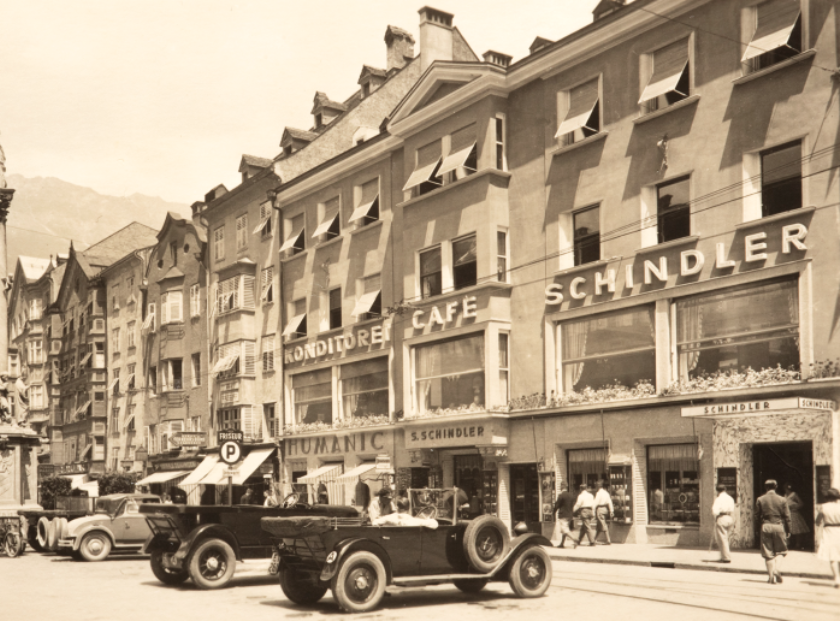
Café Schindler, photo courtesy of the author
I am an accidental author. The Lost Café Schindler started as a private project: I told myself that I was writing up my family history for my children. It was a way to tidy up a messy past and an attempt to understand my Jewish family history — in particular, my father, with whom I had a difficult relationship. I knew some fragments of my father’s history. I knew that in 1938, my thirteen year old father fled Austria to escape the Nazis and arrived in London. My father had many stories about this period and our family but I was never sure whether they were true. As I embarked on my research project every loose thread I tugged on exposed another mystery, and it was not long before I developed a full-blown obsession with the fate of the Jews of Western Austria. Meanwhile, my family waited patiently on the sidelines as I disappeared into the past.
A white water rafting holiday in Slovenia? That was cover for visiting the mountains in which my grandfather had fought in World War I. A trip to a yoga class with a friend in Innsbruck? This was a mission to see the site of my family’s nineteenth-century distillery. A visit to an antique shop in Trieste? I needed to try on an Austro-Hungarian regimental hat compete with shiny black rooster feathers. Very fetching it was too — although I was not sure what Easyjet would say if I tried to transport it back to the UK. By the time I ended up under cover in a pole dancing class in my grandparents’ old flat in Innsbruck, I knew there was no going back. As I found myself gyrating ineptly round a pole to the sound of thumping night club music, I realised that I was going to have to write “a proper book.”
I negotiated a sabbatical from my work as a lawyer in London so I could focus on researching and writing. I was nervous as I flew from London into the Alpine city of Innsbruck in Austria in 2019. There is always risk involved in trawling the past. Sometimes painful memories are best left boxed up on a shelf and labelled “do not open.”
I had a turbulent childhood in the 1970’s and ‘80’s. We rode in expensive cars, lived in luxury houses, stayed at expensive hotels, and attended private schools. Yet I understood from an early age that it was all built on sand. Time and again we were beset by crisis — there were bailiffs at the door, evictions, attempts to run from creditors. The carapace of luxury fell away and we lived on our wits, fleeing from one country to another. It was as if my father’s own teenage flight from the Nazis was being played out again and again. At the age of fifteen I was uprooted from my central London day school and sent to a provincial Austrian convent school. I spoke no German. It was a profoundly alienating experience.
We lived under siege. My father always maintained that the house was bugged and so we could never ask questions or discuss anything with him whilst in the house. Even if we went out for a walk he did not like answering questions in case someone was listening in. So those questions remained unanswered and chased each other round my head after he died.
We lived under siege. My father always maintained that the house was bugged and so we could never ask questions or discuss anything with him whilst in the house.
To answer those questions I had to trawl through the stacks of Nazi era documents I inherited from my father, as well as thirteen extraordinary family photo albums containing images stretching back to before World War I. One album was devoted to the Café Schindler: a grand Viennese-style coffee house. It was founded by my grandfather as an antidote to the horrors of fighting in World War I. He fought against the Italians on the near vertical slopes of the Alps, a part of the Southern Front of the Austro-Hungarian Empire. Here conditions were intimate, brutal, and dangerous; the soldiers faced their enemies who were often only yards away in inhospitable terrain. In winter, soldiers were under constant threat of being swept away by avalanches.
My grandfather’s café was a glittering success: it was a place where people could forget the economic and emotional privations of post-war Austria and enjoy good coffee, live music, dancing, and some of the best cakes in Austria until the Nazis arrived.
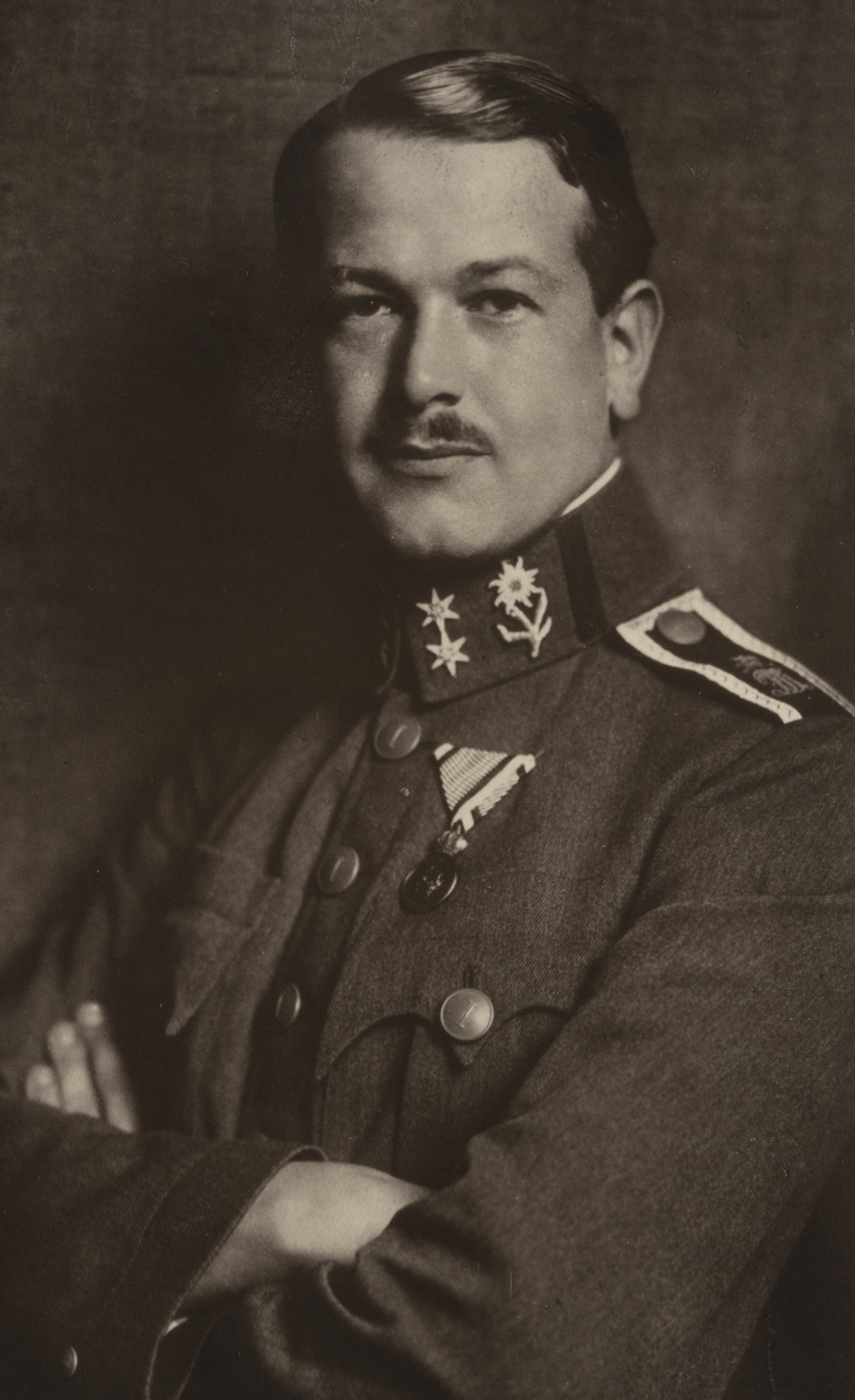
The author’s grandfather in his WWI uniform, photo courtesy of the author
During my research, I was most struck by how antisemitism could take root in a city where there were so few Jews: Innsbruck had fewer than 500 Jews in 1938. They were middle-class, highly assimilated businesspeople; in my grandfather’s case, all he ever wanted was to serve the best apple strudel in town. Yet on Kristallnacht in November 1938, my grandfather was beaten up and left for dead by people he knew. This pogrom in this provincial Austrian town with its small highly assimilated Jewish population was one of the most vicious and lethal of the entire German Reich.
When I first met my editor he decreed that I would need to know when to stop writing as the subject I was tackling was so huge. I left our lunch with his words ringing in my ears: “I don’t want a 400 page tome.” I squealed to a halt at 408 pages knowing that there was much I had left out or deserved fuller coverage. On the editing floor I regretfully abandoned a series of letters between family members in Prague and London in 1939. As I read them I feel them pulsating with panic as the net closes in. To do them justice I will need to learn Czech and spend time in Prague — maybe that is a project for another day.
In the meantime, for those who have enjoyed my book there are plenty of other interesting ones on related topics. My favourites include:
The Ratline by Philippe Sands
The Hare with Amber Eyes by Edmund de Waal
Last Waltz in Vienna by George Clare
Meriel Schindler spent the first fifteen years of her life in London before spending five formative years in Innsbruck, Austria. Schindler, now based in London, is an employment lawyer, partner, and head of a team at Withers LLP, a law firm, and a trustee of Arvon, the writing charity. The Lost Cafè Schindler is her first book.
